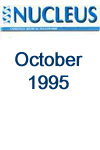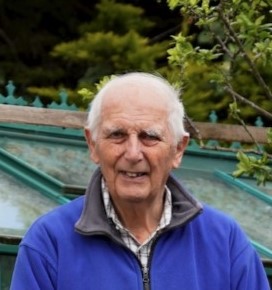My personal struggle with surrender
It was two weeks before Christmas on London Bridge Station. In my third year at Cambridge and in need of some ready cash the opportunity of night-portering on London Bridge Station in the run-up to Christmas seemed a good opportunity. The work was not over-demanding between midnight and 5 am and long hours spent in an empty railway carriage gave time for reflection.
I was grappling with the issue of full surrender to Christ. Converted to Christ during my first term at Cambridge, his presence and Lordship had revolutionised my life. Two months after my conversion I had switched my course to medicine under the clear guidance of God, but still, two years later, I was resisting full surrender to his Lordship and therefore to his guidance. I knew this was the only logical direction in which to go (either he is Lord of all, or he is not Lord at all!), but found myself unable, in my own will, to make that step. I was reading 'The Cambridge Seven', John Pollock's account of the seven outstanding Cambridge men who in 1885, to the consternation of the social and sporting world, left England behind and sailed with Hudson Taylor for China. I wanted to follow their abandonment to Christ, but found that all I could do throughout those two weeks on London Bridge Station was to cry to God, 'Lord, bring me to the place of full surrender'.
At the end of that period and before Christmas I believed that he had done just that and events moved rapidly thereafter. Within three months I was committed to overseas missionary service and within a year the focus had narrowed to Korea, a seemingly impossible goal at that time. Just over five years later we (I was now married) were on our way.
There is no doubt that God does guide. He has good purposes for each of our lives and delights to lead us into them.
Surrender is the key to guidance, without it we suffocate.
We suffocate in the polluted atmosphere of 'career choices' motivated by self-interest and the all-pervading longing for personal peace and security. Romans 12:1,2 sets the choice starkly before us. Either we 'offer our bodies as living sacrifices, holy and pleasing to God' or we 'conform to the pattern of this world' - we 'allow the world to squeeze us into its own mould' as one modern translation (Phillips) has it.
Ways God guides
How does God guide us? Firstly, he does so through Scripture - not just isolated texts that startle us into action (though that can happen: in my case 1 Cor 15:34 was one such) but the whole tenor of Scripture; the 'form of teaching' (Rom 6:17) that moulds our thinking so that 'we have the mind of Christ' (1 Cor 2:16). This is impossible without disciplined daily reading of the Scriptures with time to meditate upon them. In my case, the whole of Matthew 12, with each of its separate parts answering my doubts and directing my priorities, became the framework of my call to overseas missions. It had come in the course of my regular morning readings. If we neglect this discipline we deprive ourselves of our chief opportunity to hear the voice of God.
The point may be illustrated in the framework of the Sermon on the Mount (Mt 5 - 7). It opens with the Beatitudes (5:3-12) which set out keys to true happiness (today's psychologists would call it 'personal fulfilment') radically at odds with the contemporary world's values. The Lord's prayer (6:9-12) sets before us priorities (both personal and public) that throw the world's priorities upside down - especially those of the contemporary medical world. If we are to live lives fully surrendered to Christ there is no way out: we will have to swim against the tide. Matthew 6:33 in the context of its preceding verses makes this very clear: 'Seek first his Kingdom and his Righteousness.' It is our consistent testimony that in seeking to do this 'all these things' have been given to us as well!
What other elements are involved in the guidance of God? The Holy Spirit of course is next. His is the spoken voice of God where Scripture is the written word. The two are inseparable. We must listen and we must obey. Paul's exhortation, 'Do not grieve the Holy Spirit of God' (Eph 4:30) is relevant here. We grieve him by neglect and by preoccupation with other things. Listening takes time and that time must be preserved at all costs.
Scripture and the Holy Spirit are the two principal instruments that God uses to guide his people, but in partnership with these he uses many other channels. Friends, family, fellowship are important means of finding and testing God's guidance. Guidance may be personal, but it is rarely in isolation and must always be tested in the wider fellowship of believers. It is hard enough as students to maintain time for Christian fellowship: it is even harder as a junior doctor. The patterns of making time for worship and for deeper fellowship with a smaller number of Christian friends need to be set in place during student years if they are to last the pace in junior doctor years (Heb 10:24,25). In my own case the support of a few friends in the Christian Union was invaluable in evaluating God's guidance through the crucial clinical student and junior doctor years. This sometimes involved lengthy phone conversations in the middle of the night!
John Wesley is reported as saying, 'God usually guides me by presenting to my mind reasons for a certain course of action'. Undoubtedly God expects us to use our minds in an intelligent evaluation of our gifts and circumstances (Rom 12:3). With that saying of Wesley's fresh in my memory, one Sunday morning in Church, God brought to my mind a whole flood of reasons why I should change my natural sciences course to medicine. After the service I spoke to the preacher saying, 'Sorry, I didn't listen to a word you said, but ....' He had the wisdom to recognise (Like Eli with Samuel (1 Sa 3:8-9)) that God was speaking to me and he was in a position to help me with the practical steps of changing my course. Use of the mind, circumstances and the help of Christian friends combined to establish and effect God's guidance.
Day-to-day guidance
God's guidance is rarely an esoteric other-worldly experience. The incarnation of Jesus Christ tells us that God roots his life in the lives of ordinary men and women in the midst of the hurly-burly of day-to-day living. For Jesus himself, much of his earthly life and ministry was a matter of 'doing the next thing', of doing what is right in day-to-day living, always keeping the wider goal of the Kingdom in focus.
We find God's guidance as we work through the issues of our gifts and interests, through opportunities of travel (electives or holidays), through the issues of marriage and singleness, our wider family commitments and the choices we make as to which field of medicine attracts us. All of these are part of the raw material that God uses to make plain his chosen paths.
However, many of us simply drift through this maze of urgent and immediate decisions. There are times when we need to draw back, take stock and make careful cool-headed choices. For me the decision for overseas service was such a time. It involved packing up my revision work for the impending pharmacology exam and making off into the hills for half a day to think through, write down and pray over the pros and cons of that decision. I came back from those hours with the firm conviction that God was calling me to overseas service. That conviction never left me.
How does God guide? His methods are as varied as our individual circumstances and personalities, but returning to the Sermon on the Mount, Matthew 7:7-8 reminds us to 'Ask - Seek - Knock' and promises us that it will not be in vain.
Guidance does not get easier as we get older and when the time came to leave Korea and subsequently to settle back into UK general practice it was largely circumstances and family commitments that were the raw material of that guidance.
What matters is that through every phase of life we keep before us the exhortation 'Seek first his Kingdom and his righteousness'. If we do that we shall find at the end of the day, in the closing words of the Sermon on the Mount that we have built our house upon the rock (Mt 7:24-27). 'Only one life, 'twill soon be passed, only what's done for Jesus will last. Full surrender is a better choice than final suffocation.
































